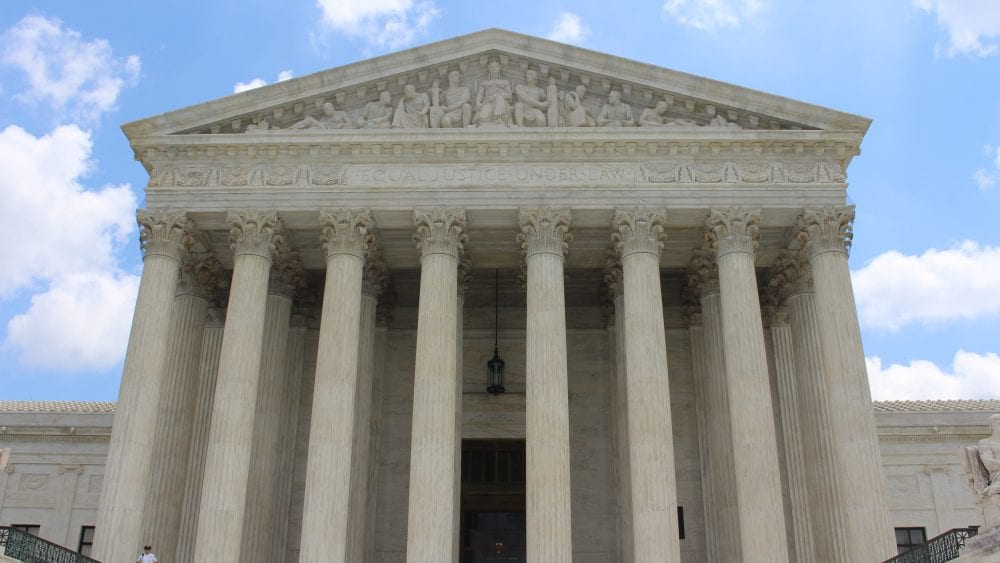One-line order creates no nationwide precedent but could signal more power for states in abortion restrictions
By Jess Bravin | The Wall Street Journal
WASHINGTON—The Supreme Court on Monday let stand a Kentucky law requiring doctors to perform and describe an ultrasound examination—even over a patient’s objection—before performing an abortion.
The one-line order, refusing to review a lower court decision, created no nationwide precedent, but suggests that states may be gaining greater leeway in regulating women’s rights to end their pregnancies. As typical in denied appeals, it was unsigned and included no explanation. It takes four votes on the nine-justice court to accept a case for review, and five to decide it.
A federal-district court in Louisville, Ky., blocked the law from taking effect in 2017, finding that compelling doctors to express the state government’s antiabortion “ideology” violated the First Amendment and that, particularly for women who were victims of sexual assault, “appears to inflict psychological harm.” The Sixth U.S. Circuit Court of Appeals, in Cincinnati, initially backed the district court, but in April reinstated the law.
Writing for a 2-1 majority, Judge John Bush said the Sixth Circuit’s approach had moved to the state’s favor following a 2018 Supreme Court decision invalidating a California law intended to inform women of their reproductive rights.
California’s law required that pregnancy centers run by antiabortion groups post signs informing patients that they may be eligible for free or subsidized reproductive health care, including abortions.
The Supreme Court’s 5-4 opinion, by Justice Clarence Thomas, found that the California law infringed the centers’ First Amendment rights by compelling them to promote abortion. In that opinion, Justice Thomas cited a 1992 precedent, Planned Parenthood v. Casey, where a plurality upheld some abortion regulations including an informed-consent provision requiring doctors to describe abortion procedures to patients.
“We have long understood Casey as marking a shift toward greater respect for States’ interests in informing women and protecting unborn life,” Judge Bush wrote in the April appeals court opinion. The 2018 Thomas opinion converted the 1992 plurality view into a majority, Judge Bush wrote, thus shifting the First Amendment analysis firmly to uphold the Kentucky law.
“Discomfort to the patient from the mandated disclosure of truthful, non-misleading, and relevant information does not make an informed-consent law invalid under the First Amendment. Indeed, discomfort may be a byproduct of informed consent itself,” Judge Bush, a 2017 Trump appointee, wrote.
Kentucky’s only licensed abortion clinic, EMW Women’s Surgical Center in Louisville, challenged the law.
“This has nothing to do with informed consent, and everything to do with the state attempting to undermine both doctors’ freedom of speech and women’s right to make their own decisions about abortion,” said David Cole, national legal director for the American Civil Liberties Union, which represented EMW Women’s Surgical Center.
None of the Supreme Court’s four liberals, who dissented from Justice Thomas’s 2018 decision, noted disagreement with letting the Kentucky law stand.
The high court currently has one high-profile abortion case on the docket likely to display deep divisions, however. In March, the court is set to review a Louisiana law requiring that doctors have admitting privileges at a local hospital before performing abortions.
In 2016, the Supreme Court struck down a nearly identical admitting-privileges law from Texas on the grounds that it violated another standard from the 1992 Casey decision—it imposed an undue burden on women seeking abortions because it forced many clinics to shut down while providing negligible medical benefits.
A federal appeals court in New Orleans upheld the Louisiana law, finding distinctions from the invalid Texas measure. Another distinction: Justice Anthony Kennedy, who joined with the Supreme Court’s four liberals to form the 2016 majority, has been replaced by Justice Brett Kavanaugh, whose supporters believe he will be more sympathetic to antiabortion laws.
Mary Ziegler, a law professor at Florida State University, said the court’s action on the Kentucky case should be understood in light of the more significant case from Louisiana coming up for argument in March.
“My assumption is that there’s still a lot of strategizing going on,” she said, “and the liberal justices who you would expect to register a dissent haven’t given up on getting a fifth vote” to invalidate the Louisiana law.
Write to Jess Bravin at jess.bravin@wsj.com
This story originally appeared on https://www.wsj.com/


